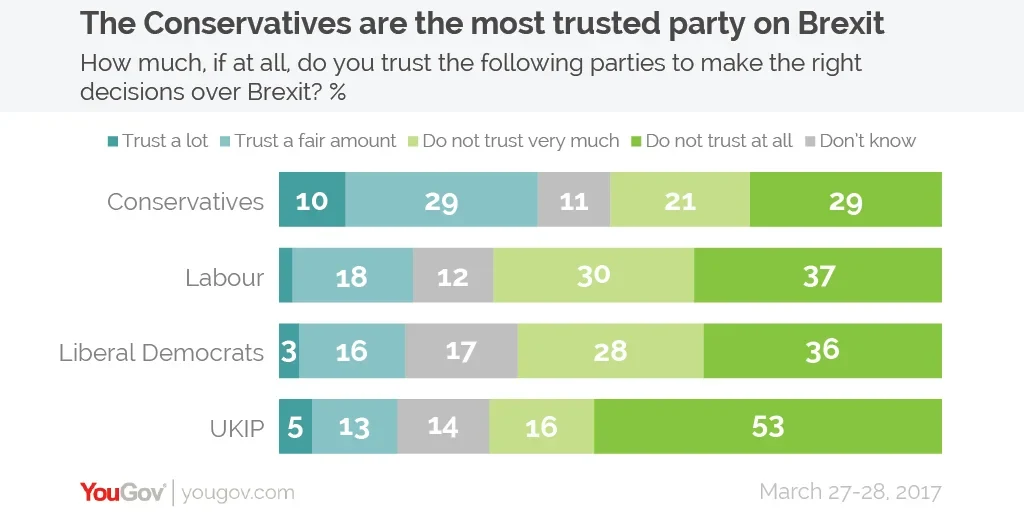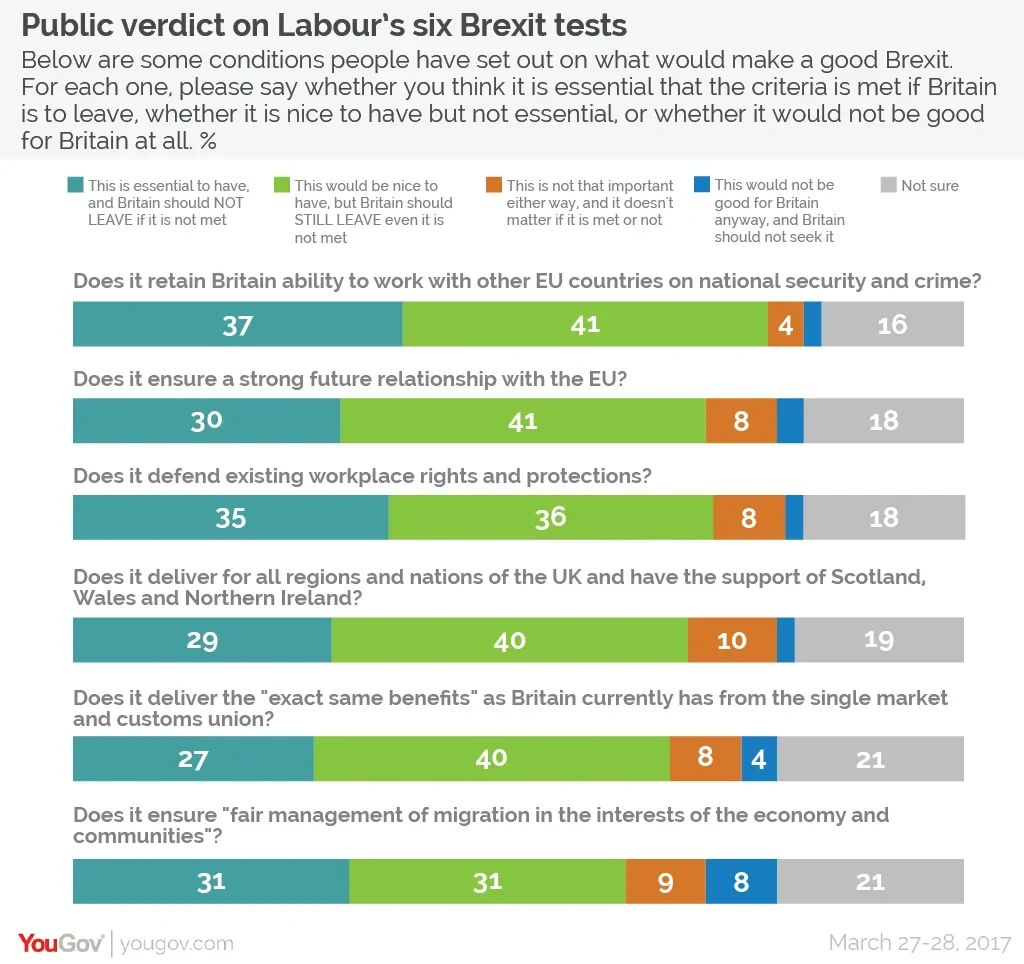The public think Labour’s Brexit tests are reasonable, but don’t think Labour would be justified in opposing Brexit if they are not met
Yesterday Labour set out its six tests for Brexit with Sir Keir Starmer saying "The Prime Minister should be under no illusion that Labour will not support a deal that fails to reflect core British values and the six tests I have set out”.
Currently just one in five (20%) voters trust Labour when it comes to leaving the EU, compared to nearly double that (39%) who trust the Conservatives. With “Britain leaving the EU” now seen as the most important issue facing the country, regaining trust on Brexit is fundamental if the party wants to return to power - especially in the event of a snap election.

New YouGov polling carried out immediately after Sir Keir’s speech puts Labour’s new tests to the test, to see if the party has finally found a position on Europe that can cut through with the public.
Taken individually, each test is generally popular. “Does it retain Britain’s ability to work with other EU countries on national security and crime” is the most attractive, with almost eight in ten (78%) thinking it is a good thing, and “Does it ensure "fair management of migration in the interests of the economy and communities" as the least favoured – although more than six in ten (62%) still support it.

However, when developing these tests, it’s easy for Sir Keir Starmer to come up with a nice sounding list – what’s harder is to make it connect with the electorate and make them feel as though each point is essential. And it is here where Labour’s new approach has yet to make progress.
Despite widespread support for Labour’s tests the public don’t want them to derail Brexit. For all but one test, people believe that each ‘would be nice to have, but Britain should STILL LEAVE if it is not met’. When taking the package as a whole, just a third (32%) think Labour would be justified in opposing Brexit if all six conditions are not met, compared to over four in ten (44%) who think the party would not be justified. Around a quarter (24%) are not sure.
Moreover, the tests the Prime Minister is probably least likely to pass – such as delivering for all regions and nations of the UK, and delivering the "exact same benefits" as Britain currently has from the single market and customs union – are the ones that the public are least likely to be seen as essential. Only 29% and 27% of the public respectively believe the UK should NOT leave if the test is not met.
But this doesn’t necessarily mean there isn’t logic to Labour’s position. Firstly, Labour voters are far more supportive of the Brexit tests than the public as a whole. Overall, 57% of 2015 Labour voters think the tests are reasonable and 55% think the party would be justified in opposing Brexit if they are not met.
Secondly, this strategy could pay dividends in the long run. Our research last year showed that the public are currently unforgiving towards Remainers who appear to be trying to block Brexit, with nearly six in ten (59%) describing calls for a second referendum as illegitimate. But when looking at these new tests, 45% of British adults think they are reasonable, compared to 31% of voters thinking they are unreasonable. This allows Labour to be seen to be reasonably supporting the government as Article 50 is triggered whilst also hedging its bets so they can later vote against Brexit if public support turns during the re-negotiation period.
So, although public don’t yet see these conditions as essential and don’t want Labour to oppose Brexit if the government fails to meet them, there are many reasons why this could end up being a shrewd move by Sir Keir Starmer – especially if public opinion does shift over the next couple of years.
Photo: Chatham House





